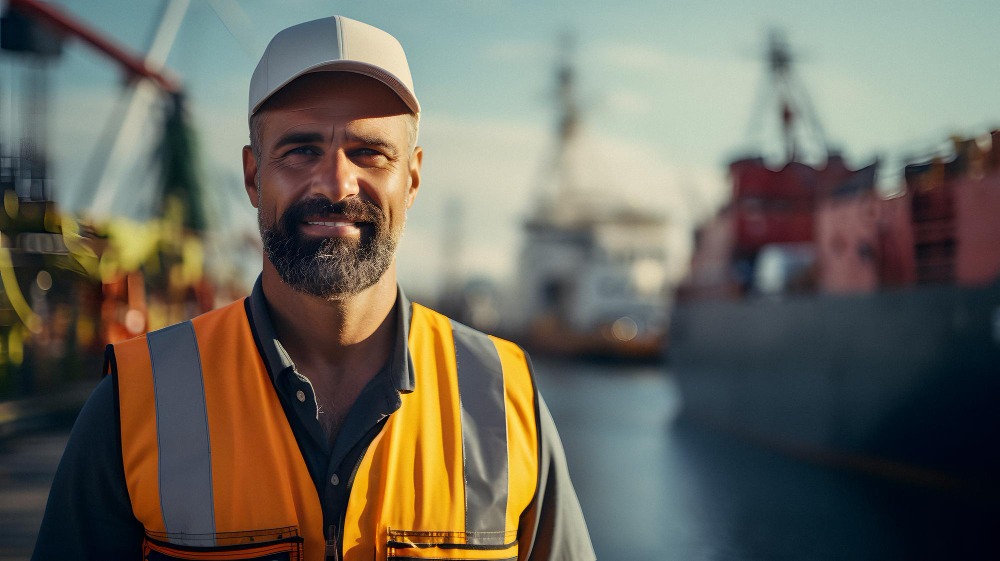Maritime Accident Lawyer in Corpus Christi
A Top Choice for Your Maritime Injury Case
Maritime Injury Lawyers in Corpus Christi, Texas
In Texas, maritime workers have specific legal rights and protections under specialized laws. These include the Jones Act for seamen, and the Longshore and Harbor Workers’ Compensation Act (LHWCA) for longshoremen and harbor workers. They provide specific remedies, and protections available to maritime workers, including compensation for medical expenses, lost wages, and other damages. When pursuing compensation for a maritime injury, it is important to have an attorney that understands these laws.
Free Consultation With Perkins & Perkins About Maritime Injuries
When choosing an attorney, it is important to choose one with knowledge and experience. Perkins & Perkins has a proven track record of representing plaintiffs in a variety of personal injury cases. Our abilities are demonstrated by an $18,111,232.00 verdict we secured in 2022, which was recognized as the largest construction injury verdict in Texas, that year.
Perkins & Perkins offers free consultations and operates on a contingency fee basis for injury cases. This means that you pay nothing unless we recover damages for you. With our proven knowledge and experience, we stand ready to help you. Contact us today for a consultation to discuss your options and take the first step in reclaiming your life.
What Are Maritime Injuries?
Maritime injuries are injuries suffered by individuals while working on or near water, particularly in occupations involving the sea, rivers, or docks. These injuries can occur on various maritime vessels such as cargo ships, fishing boats, oil rigs, and even at ports or shipyards. Due to the demanding and often hazardous nature of maritime work, the types of injuries reported are diverse and can be severe.
Common Causes of Maritime Injuries in Corpus Christi
Maritime work is inherently hazardous. Understanding the common causes of maritime injuries is crucial for workers and employers to take preventive measures and for injured parties to seek appropriate legal help.
Maritime Injury Accidents on Commercial Ships
- Slip and Fall Accidents: These are perhaps the most common due to wet and slippery decks.
- Equipment Failures: Faulty winches, cranes, or other shipboard equipment can lead to severe injuries.
- Fires and Explosions: Given the presence of flammable materials, these accidents pose a significant risk and can cause devastating injuries.
- Collisions and Groundings: When ships collide or run aground, the crew can suffer from impact injuries or be thrown overboard.
- Overexertion: Crew members often work long hours under strenuous conditions, leading to overuse injuries.
Commercial ships, including cargo vessels, tankers, and passenger ships, are bustling environments where accidents can frequently occur. Common causes of injuries on these ships include:
Offshore Oil Rig Incidents
Offshore oil rigs pose unique challenges and dangers, not commonly found in other maritime sectors. Workers on these platforms are exposed to some of the most extreme conditions and hazards:
- Blowouts and Fires: The release of oil or gas can lead to catastrophic fires and explosions.
- Equipment Malfunctions: Heavy industrial equipment used on oil rigs can malfunction, leading to severe injuries or fatalities.
- Helicopter and Transport Accidents: Transporting workers to and from offshore rigs often involves helicopters, which can crash or experience accidents.
- Harsh Weather Conditions: Workers are also at the mercy of the weather, with storms and high seas creating hazardous working conditions.
Dock and Harbor Maritime Accidents
Docks and harbors are critical junctions in maritime operations where accidents can easily happen, involving both sea-going vessels and workers onshore:
- Falling Cargo: Improperly secured cargo can fall, causing injuries to dock workers or damaging smaller boats.
- Crane and Forklift Accidents: The heavy machinery used to move cargo can cause serious accidents if improperly operated or if a malfunction occurs.
- Slips, Trips, and Falls: Like ships, docks are often wet and slippery, which is a primary cause of falls.
- Chemical Exposures: Ports often handle hazardous materials, which can cause burns or respiratory problems if mishandled.
Types of Maritime Injuries
1. Catastrophic Injuries and Fatalities
In the maritime industry, the risk of catastrophic injuries is notably high due to the hazardous working environments and the dangerous nature of the work. Such injuries can include:
- Traumatic Brain Injuries (TBI): Resulting from falls or being struck by heavy equipment.
- Spinal Cord Injuries: These can lead to partial or total paralysis, significantly impacting a victim’s quality of life.
- Amputations: Severe injuries can result in the loss of limbs, often due to accidents involving machinery or heavy cargo.
- Burns: Fires and explosions can cause serious burns, which may require extensive, long-term medical treatment.
Tragically, fatalities are also a part of the risk, with workers losing their lives due to severe accidents or catastrophic injuries sustained on the job.

2. Long-term Health Complications
The impact of maritime injuries can extend far beyond the immediate aftermath of an accident, leading to chronic health issues that might not become apparent until years later:
- Hearing Loss: Prolonged exposure to loud noises on ships or oil rigs can lead to significant, irreversible hearing damage.
- Respiratory Diseases: Inhalation of toxic fumes or particles, especially in enclosed spaces or during accidents involving hazardous materials, can cause long-term respiratory issues.
- Musculoskeletal Disorders: Chronic back, knee, and joint pain resulting from repetitive tasks or injuries that did not properly heal.
- Chemical Exposure Effects: Long-term exposure to hazardous chemicals can lead to a variety of serious medical conditions, including cancers and neurological disorders.

3. Psychological Impacts
The mental and emotional toll of working in high-risk maritime environments, experiencing, or witnessing traumatic events can be profound and lasting:
- Post-Traumatic Stress Disorder (PTSD): Many maritime workers develop PTSD following accidents involving severe injuries or fatalities.
- Depression and Anxiety: The stress from the physical and financial impact of an injury can lead to long-term psychological conditions.
- Adjustment Disorders: Struggling to adapt to life post-injury or with a disability can affect mental health and personal relationships.

MARITIME ACCIDENT LAWYER IN CORPUS CHRISTI, TEXAS
CONTACT US FOR A FREE CASE REVIEW
(361) 853-2120
Understanding Maritime Law
Here is an overview of the key legislations governing maritime activities and private international law governing the relationships between private entities that operate vessels on the oceans.
Maritime Injuries: The Jones Act
Formally known as the Merchant Marine Act of 1920, the Jones Act provides important protections for seamen who are injured while working. Unlike workers’ compensation, which provides benefits regardless of fault, the Jones Act allows qualified seamen to sue their employers for personal injury damages on the grounds of negligence.
Key points about the Jones Act include:
- Eligibility: To qualify, a worker must spend at least 30% of their time in active service of a vessel on navigable waters.
- Fault and Negligence: The seaman must prove that the vessel’s owner, the operator, or fellow employees were negligent in their duties, which led to their injury.
- Maintenance and Cure: Under this act, injured seamen are entitled to maintenance (compensation for living expenses until fit for duty) and cure (medical treatment related to the injury).
Longshore and Harbor Workers' Compensation Act
This act provides compensation to employees who are injured while working on the docks, in shipping terminals, or at shipyards—areas not covered under the Jones Act because these workers are not considered seamen. Key provisions include:
- Compensation: It offers compensation for lost wages, medical benefits, and rehabilitation costs.
- Employer’s Liability: This act removes the need for the injured worker to prove negligence on the part of the employer, simplifying the process of obtaining compensation.
- Survivor Benefits: In the event of work-related deaths, the act provides benefits to the dependents of the deceased worker.
General Maritime Law and Maintenance and Cure in Corpus Christi, Texas
General maritime law is a compilation of judicial decisions and statutes that govern legal issues pertaining to the sea and navigable waters. Maintenance and cure are key components of this law:
- Maintenance: Refers to a daily allowance paid to a seaman while they are recovering from an injury sustained while in service to a vessel.
- Cure: Refers to the obligation of the employer to provide medical treatment reasonably required to treat the injury until the seaman has reached maximum medical improvement.
- Unseaworthiness Claims: Under general maritime law, seamen can also bring claims for injuries caused by unseaworthy conditions aboard the vessel, which means the vessel or its equipment was not reasonably fit for its intended use.
Common Maritime Injury Questions
1. Is maritime law the same as admiralty law?
2. What are considered navigable waters?
3. What is considered a seaman?
4. Can I sue if the vessel I was on if it was unseaworthy?
5. How much time do I have to file a claim?
Trustindex verifies that the original source of the review is Google. Great experience with these Attorneys.Trustindex verifies that the original source of the review is Google. Jared came highly recommended and let me tell you he did not disappoint. Sandy was almost always available to take my calls and answer my questions. Settled my accident and got me five figures!Trustindex verifies that the original source of the review is Google. I recommend this attorney and his staff for your personal injury case. They helped me and answered every time I had a question. Im very happy with the money I got back.Trustindex verifies that the original source of the review is Google. Very professionalTrustindex verifies that the original source of the review is Google. Very great service and friendly staff !Trustindex verifies that the original source of the review is Google. I love Perkins and Perkins law firm they answered all my questions and they were very helpfulTrustindex verifies that the original source of the review is Google. Such great people at Perkins & Perkins. From the moment I stepped foot in their establishment , I knew I made a great choice. Super helpful and very knowledgeable!Trustindex verifies that the original source of the review is Google. Excelente servicio legal, son muy profesionales!
